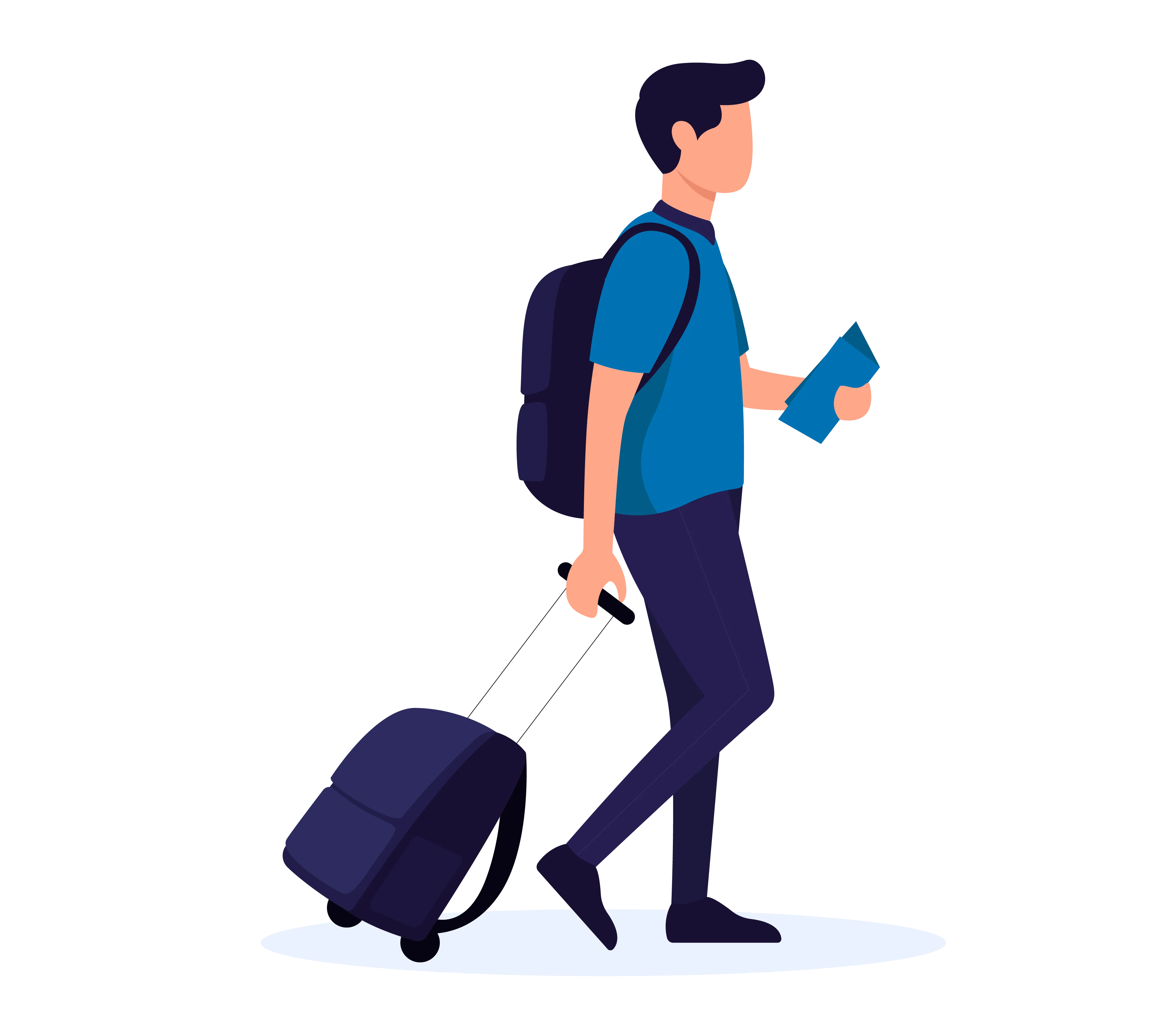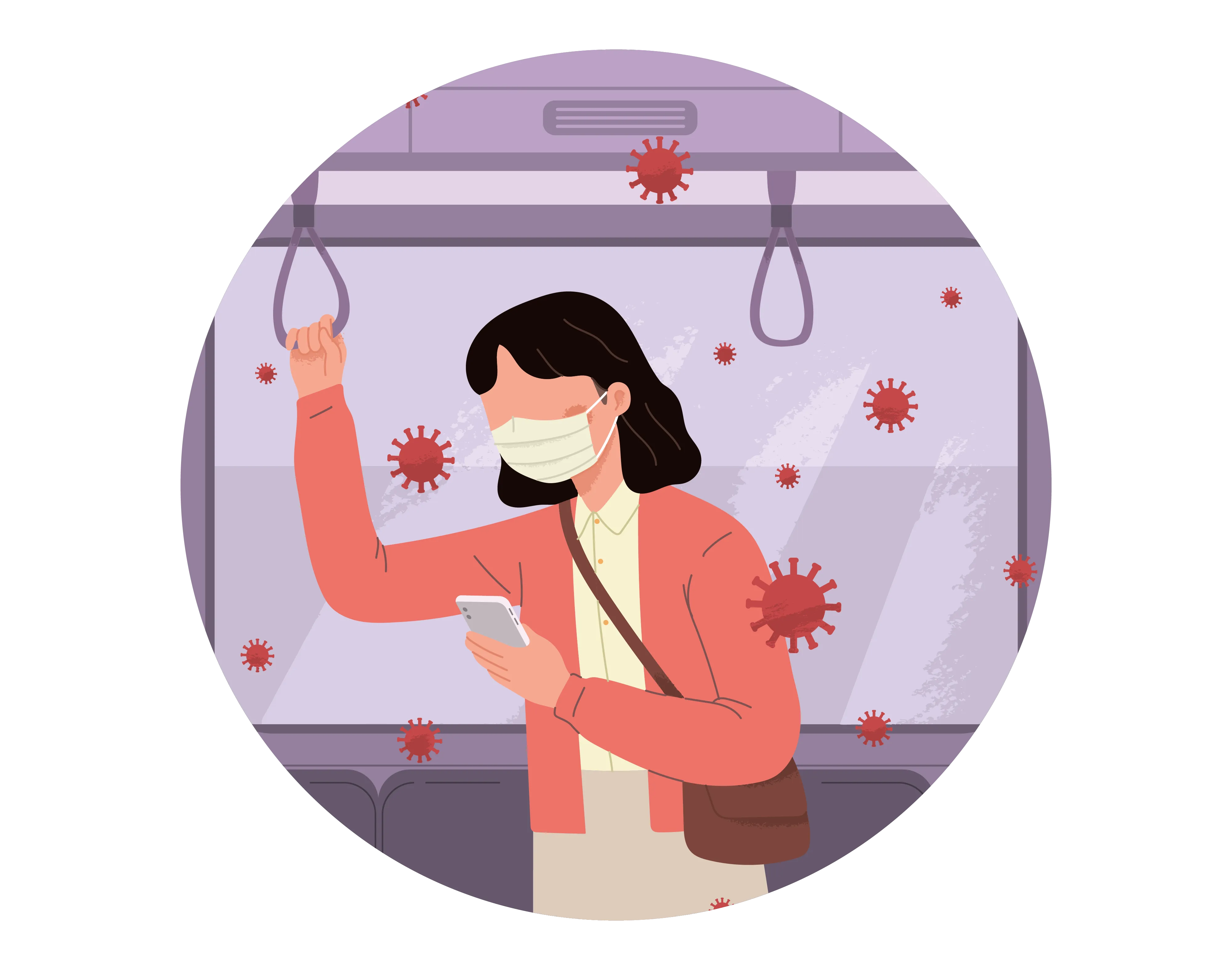Psychiatrist | 5 min read
Have Traveling Anxiety? 7 Easy Tips for Hassle-free Trips!
Medically reviewed by
Table of Content
Key Takeaways
- Anxiety while traveling can have a variety of triggers and symptoms
- Manage travel anxiety by accepting your feelings and planning in advance
- Sensory distractions and going for an anxiety therapy program can help
Traveling is an enjoyable hobby and passion for many. For some, it is simply the part and parcel of their job. However, it is also a source of anxiety and depression for those who do not enjoy it. If you suffer from traveling anxiety and do need to travel for a reason, there are ways for you to handle your stress and anxiety.
Read on to understand the common symptoms of anxiety while traveling. This way, you can action some of the travel anxiety tips listed below when you start feeling uneasy. While this experience affects everyone differently, you may find something that will help you relax and reduce your anxiety of traveling.

Symptoms of Travel Anxiety
Anxiety manifests differently in everyone, and there is no set standard for how it is likely to manifest. However, there are a few common symptoms that you may face if you have travel anxiety. You may experience some of the following when you think about, prepare for, or are in the process of traveling:
- Increased heart rate
- Shortness of breath
- Sweating
- Nausea
- Agitation and nervousness
- Distracted state of mind and less focus
- Disturbed sleep or insomnia
In case of more severe anxiety, you may experience panic attacks. Sometimes, any of the symptoms above may also trigger panic attacks in case they overwhelm you. A panic attack can make you feel disoriented or dizzy.
Additional Read: Put Sleeplessness to Rest! 9 Easy Home Remedies for Insomnia
Causes of Anxiety While Traveling
Anxiety of traveling can stem from a variety of factors. Some experiences or situations may create negative impressions within you. When this happens, a similar situation can trigger fear, anxiety and depression, or panic attacks. For instance, a psychiatric study found that after a vehicular accident, 65% of respondents suffered from travel anxiety to the extent that 9% of them did not drive anymore [1].
Some causes of anxiety while traveling are:
- A fear or phobia of new places or environments
- Insecurity of leaving the known surroundings
- Low or no comfort with changes or unfamiliarity
- Dealing with mental health or other trauma
- Discomfort due to a life change that the travel represents

Seven Tips on Travel Anxiety
While traveling anxiety can mar your experience, there are a few ways to manage your symptoms. Try some of these tips before your next trip, so that anxiety and travel don’t overlap as much. Being able to combat your symptoms and fear will make your trip easier and more peaceful.
1. Anticipate and prepare for your symptoms: If you have faced travel anxiety before, you can mentally prepare for trips in advance. Try meditation and relaxation techniques in order to calm yourself down. Visualize every step of the trip from going to the airport or station, boarding a train or plane, the common sights you will see, and more. This will help you be more relaxed when you actually go on the trip.
2. Anticipate and prepare for travel: You can plan your trip down to the details, so that you can be prepared for any emergency or eventuality. Knowing that you have a plan in place will add to your peace of mind. You can also carry books or music that are familiar to you. This can help offer you comfort or enhance your mood.
3. Identify triggers: You can try to recognize causes of your anxiety and try and work through them. Is it the number of people in enclosed spaces that makes you nervous? Is it the noise that the train makes? Knowing your triggers can help you avoid them or decrease their effect on you by using certain tools.
4. Bring something to occupy you: For a visual and mental distraction, you can carry games, shows or movies with you. Calming activities like books or puzzles are a good choice. In fact, research has shown that playing chess on cell phones can decrease effects of a panic attack [2].
5. Get company: Traveling with family or friends may make you feel more open and freer. This is likely to keep your focus on the positives, and away from anxiety triggers.
6. Acknowledge your feelings and symptoms: Acceptance is often the first step to management and recovery. This may help you start on a path to reducing your anxiety. This, in turn, will have long-term benefits for your mental wellness.
7. Consult with a psychiatrist: Your doctor may suggest that you go for therapy to beat travel anxiety. He or she may even give you medication if your symptoms are severe. Take professional advice to heart as this may help you manage your symptoms better.
Travel is sometimes a necessity and can even help you discover your own self as you explore new places. Try not to give up on travel due to negative symptoms. An anxiety therapy program can be a smart step for you to take. For this as well as other suggestion son beating travel anxiety, book a doctor consultation on Bajaj Finserv Health. Find a doctor you are comfortable with using the filters on the platform. The right doctor can make a big difference in your treatment progress, and you will be on track to managing your symptoms better.
References
- https://pubmed.ncbi.nlm.nih.gov/19935481/
- https://www.sciencedirect.com/science/article/abs/pii/S1876201817305695?via%3Dihub
Disclaimer
Please note that this article is solely meant for informational purposes and Bajaj Finserv Health Limited (“BFHL”) does not shoulder any responsibility of the views/advice/information expressed/given by the writer/reviewer/originator. This article should not be considered as a substitute for any medical advice, diagnosis or treatment. Always consult with your trusted physician/qualified healthcare professional to evaluate your medical condition. The above article has been reviewed by a qualified doctor and BFHL is not responsible for any damages for any information or services provided by any third party.





